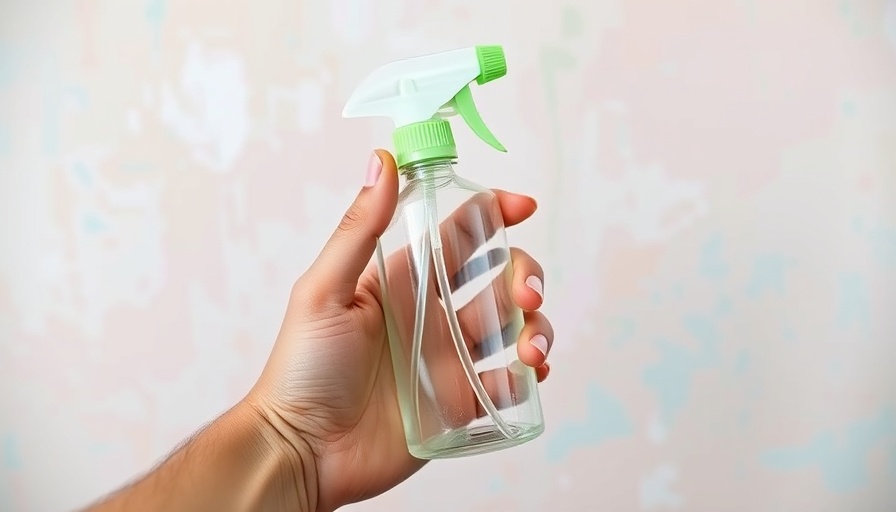
Transform Your Cleanliness Routine with Homemade Window Cleaner
Switching to a homemade window cleaner can be a game-changer for your cleaning routine. With just two simple ingredients—water and isopropyl alcohol—you can whip up a solution that not only rivals store-bought brands but also keeps your home free from harsh chemicals. It's hard to argue with results that save money while also promoting a healthier living space.
The Allure of DIY Cleaning Products
Making your own cleaning products offers numerous benefits beyond cost savings. For those looking to lead a more sustainable lifestyle, homemade cleaners are a wonderful alternative to store-bought options that often come packaged in single-use plastics and contain toxic chemicals. Achieving streak-free windows without harmful side effects? Yes, please!
Ingredients that Work Wonders
The magic lies in the ingredients you choose. The two core components—water and isopropyl alcohol—are effective detergents that cut through grime and evaporate quickly to avoid streaking. Optional additions like white vinegar enhance this cleaning power by breaking down mineral deposits. Dish soap can add a pleasant scent while tackling greasy fingerprints, making your chores just a bit more enjoyable. Even the choice of using distilled water can impact cleanliness, ensuring that no undesirable minerals mar the shine of your freshly cleaned windows.
Why Avoiding Store-Bought Cleaners Matters
Many traditional cleaning products contain ammonia and other harsh chemicals that can be harmful, especially to sensitive individuals. Particularly, the homemade cleaner offers a viable solution for those with allergies or chemical sensitivities. Instead of worrying about what lies beneath the surface of popular brands, embracing DIY provides peace of mind, knowing exactly what is going into your cleaning routine.
Practical Tips for Mixing Your Windows Cleaner
To create your own cleaning concoction, simply mix one part isopropyl alcohol with one part water in a spray bottle. Remember, there's no "one-size-fits-all" recipe, so feel free to customize with scents or additional cleaning agents as needed. Just keep in mind to avoid combining acids like vinegar with bleach, as this can produce harmful gases.
Share Your DIY Journey
As you embark on this cleaning transformation, consider sharing your own experiences or variations of the recipe. Whether through social media or local community boards, inspiring others to adopt environmentally friendlier practices can ignite a movement. Let's keep the conversation going about sustainable living and helping each other create healthier homes!
In summary, switching to homemade window cleaner not only enriches your cleaning routine but fosters a more sustainable and health-conscious lifestyle. So grab that empty spray bottle and enjoy the satisfaction of sparkling, streak-free windows!
 Add Row
Add Row  Add
Add 




Write A Comment